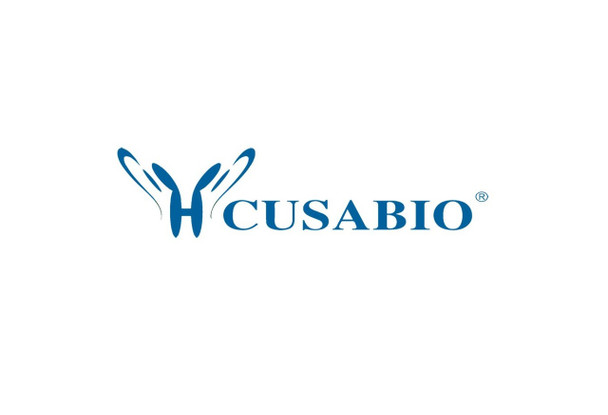Cusabio Human Recombinants
Recombinant Human Phospholipid hydroperoxide glutathione peroxidase (GPX4) (U73S), partial | CSB-YP009869HU(M)
- SKU:
- CSB-YP009869HU(M)
- Availability:
- 3 - 7 Working Days
Description
Recombinant Human Phospholipid hydroperoxide glutathione peroxidase (GPX4) (U73S), partial | CSB-YP009869HU(M) | Cusabio
Alternative Name(s): PHGPx;Glutathione peroxidase 4;GPx-4;GSHPx-4
Gene Names: GPX4
Research Areas: Cancer
Organism: Homo sapiens (Human)
AA Sequence: CASRDDWRCARSMHEFSAKDIDGHMVNLDKYRGFVCIVTNVASQSGKTEVNYTQLVDLHARYAECGLRILAFPCNQFGKQEPGSNEEIKEFAAGYNVKFDMFSKICVNGDDAHPLWKWMKIQPKGKGILGNAIKWNFTKFLIDKNGCVVKRYGPMEEPLVIEKDLPHYF
Source: Yeast
Tag Info: C-terminal 10xHis-tagged
Expression Region: 29-197aa(U73S)
Sequence Info: Partial
MW: 21.4 kDa
Purity: Greater than 90% as determined by SDS-PAGE.
Relevance: Essential antioxidant peroxidase that directly reduces phospholipid hydroperoxide even if they are incorporated in membranes and lipoproteins (By similarity). Can also reduce fatty acid hydroperoxide, cholesterol hydroperoxide and thymine hydroperoxide (By similarity). Plays a key role in protecting cells from oxidative damage by preventing membrane lipid peroxidation (By similarity). Required to prevent cells from ferroptosis, a non-apoptotic cell death resulting from an iron-dependent accumulation of lipid reactive oxygen species (PubMed:24439385). The presence of selenocysteine (Sec) versus Cys at the active site is essential for life: it provides resistance to overoxidation and prevents cells against ferroptosis (By similarity). The presence of Sec at the active site is also essential for the survival of a specific type of parvalbumin-positive interneurons, thereby preventing against fatal epileptic seizures (By similarity). May be required to protect cells from the toxicity of ingested lipid hydroperoxides (By similarity). Required for normal sperm development and male fertility (By similarity). Essential for maturation and survival of photoreceptor cells (By similarity). Plays a role in a primary T-cell response to viral and parasitic infection by protecting T-cells from ferroptosis and by supporting T-cell expansion (By similarity). Plays a role of glutathione peroxidase in platelets in the arachidonic acid metabolism (PubMed:11115402). Reduces hydroperoxy ester lipids formed by a 15-lipoxygenase that may play a role as down-regulator of the cellular 15-lipoxygenase pathway (By similarity).
Reference: "Regulation of ferroptotic cancer cell death by GPX4." Yang W.S., SriRamaratnam R., Welsch M.E., Shimada K., Skouta R., Viswanathan V.S., Cheah J.H., Clemons P.A., Shamji A.F., Clish C.B., Brown L.M., Girotti A.W., Cornish V.W., Schreiber S.L., Stockwell B.R. Cell 156:317-331(2014)
Storage: The shelf life is related to many factors, storage state, buffer ingredients, storage temperature and the stability of the protein itself. Generally, the shelf life of liquid form is 6 months at -20?/-80?. The shelf life of lyophilized form is 12 months at -20?/-80?.
Notes: Repeated freezing and thawing is not recommended. Store working aliquots at 4? for up to one week.
Function:
Involvement in disease:
Subcellular Location:
Protein Families:
Tissue Specificity:
Paythway:
Form: Liquid or Lyophilized powder
Buffer: If the delivery form is liquid, the default storage buffer is Tris/PBS-based buffer, 5%-50% glycerol. If the delivery form is lyophilized powder, the buffer before lyophilization is Tris/PBS-based buffer, 6% Trehalose, pH 8.0.
Reconstitution: We recommend that this vial be briefly centrifuged prior to opening to bring the contents to the bottom. Please reconstitute protein in deionized sterile water to a concentration of 0.1-1.0 mg/mL.We recommend to add 5-50% of glycerol (final concentration) and aliquot for long-term storage at -20?/-80?. Our default final concentration of glycerol is 50%. Customers could use it as reference.
Uniprot ID: P36969
HGNC Database Link: N/A
UniGene Database Link: N/A
KEGG Database Link: N/A
STRING Database Link: N/A
OMIM Database Link: N/A


-SDS__04531.1638526976.jpg?c=1)

-SDS__04531.1638526976.jpg?c=1)




